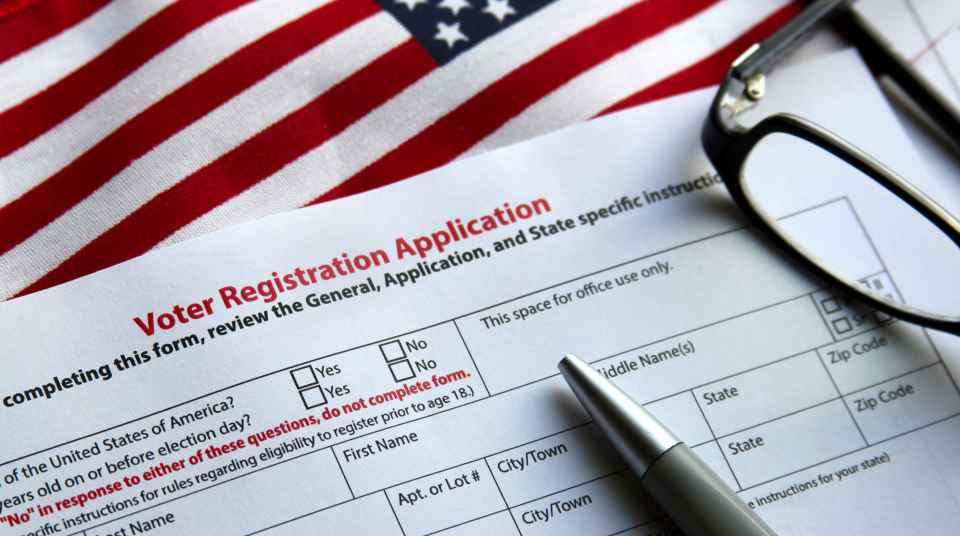
League of Women Voters of Tennessee v. Hargett
What's at Stake
The American Civil Liberties Union, ACLU of Tennessee, Campaign Legal Center, and Fair Elections Center filed a federal lawsuit challenging a new Tennessee law that imposes substantial penalties on groups that foster political participation via voter registration efforts.
Summary
NASHVILLE — The American Civil Liberties Union, ACLU of Tennessee, Campaign Legal Center, and Fair Elections Center filed a federal lawsuit today challenging a new Tennessee law that imposes substantial penalties on groups that foster political participation via voter registration efforts.
The lawsuit was filed on behalf of the League of Women Voters of Tennessee, American Muslim Advisory Council, Mid-South Peace & Justice Center, Rock the Vote, and Spread the Vote.
Tennessee ranks 44th in voter registration, but during the 2018 midterm election the state saw a surge in registrations. Instead of providing greater resources to help election offices process the influx, the Tennessee General Assembly passed a measure that creates criminal and civil penalties against those who fail to comply with onerous requirements and turn in “incomplete” applications. The governor signed the bill into law last week.
The complaint charges the new law violates freedom of speech, freedom of association, due process, and the fundamental right to vote under the First and Fourteenth Amendments. Along with the lawsuit, the groups filed a notice letter to the state citing violations of the National Voter Registration Act.
In September 2019, the court granted a preliminary injunction that prevented the challenged law from going into effect. The decision allowed the voter registration work of the Plaintiffs to continue unabated.
In direct response to the decision of the court, the Defendant Secretary of State wrote to the Tennessee legislature and encouraged it to repeal the challenged laws. The legislature did so, and it became law on April 2, 2020, thus striking the challenged provisions from the books. With the repeal, Plaintiffs were able to continue community voter registration drives unencumbered by the unconstitutional law.
Our plaintiffs agreed to dismiss their case after the repeal and requested the state to cover their legal expenses. The District Court awarded our clients' attorney's fees, but Tennessee appealed to the U.S. 6th Circuit Court of Appeals, which upheld the award, citing federal law stating that attorney's fees go to the "prevailing party" in civil rights lawsuits.
However, the state argued that plaintiffs only prevail when a court decides on the merits of their claims, not just with a preliminary injunction, as it can be undone later or mooted by a case dismissal. In Hargett v. Tennessee State Conference of the NAACP, the state asked the U.S. Supreme Court to invalidate the attorney's fees award.
On June 12, 2023, the Supreme Court denied Tennessee’s petition for a writ of certiorari and affirmed the lower courts' rulings.
Legal Documents
-
09/12/2019
Order Granting PI
Date Filed: 09/12/2019
Affiliate: Tennessee
-
09/09/2019
LWVT v. Hargett - Order Denying Motion to Dismiss
Date Filed: 09/09/2019
Affiliate: Tennessee
-
05/09/2019
LWVT v Hargett Notice Letter
Date Filed: 05/09/2019
Affiliate: Tennessee
-
05/09/2019
LWVT v Hargett - COMPLAINT
Date Filed: 05/09/2019
Affiliate: Tennessee
Press Releases
Tennessee Removes Anti-Voter Registration Provisions Following Federal Legal Challenge
Federal Court Blocks Tennessee Law That Undermines Voter Registration
Legal Challenge to Tennessee Law Undermining Voter Registration Will Proceed
Groups Challenge New Tennessee Law That Undermines Voter Registration